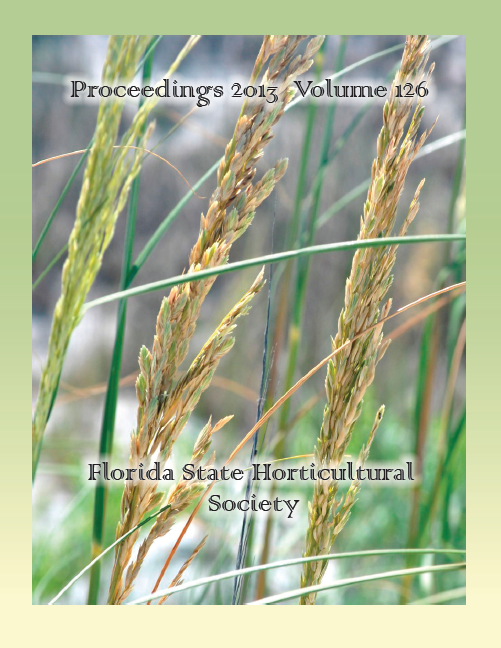Abstract
Citrus canker, caused by Xanthomonas citri subsp. citri (Xcc), is a bacterial disease of citrus and results in peel blemishes rendering fresh fruit unsalable. Xcc is most active in warm, wet Florida summers where tissues are infected during periods of active growth. Florida growers spray trees with copper formulations (Cu), but these sprays are removed by strong rains and intense radiation of Florida summers. A study was undertaken in Florida commercial grapefruit groves in 2009 and 2010 to assess the efficiency of a spray combining copper with a specially formulated, hydrating wax (WashGard®). Compared to control trees the canker free fruit incidence was increased by about 10% in 2009 and 57% in 2010 as field inoculum decreased with consistent use. The mechanisms contributing to the spray efficiency were investigated. In addition to the ability of WashGard to reduce the UV degradation of the Cu and maintain the Cu on the trees during rain events, it was found that the wax held moisture absorbed by the Cu, allowing the Cu to be more active against Xcc when compared to Cu alone.

